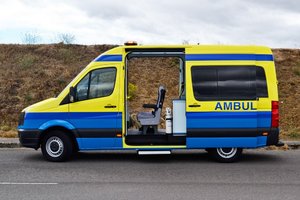If you just go about your 'normal' life with tinnitus and basically ignore hearing protection, there's a risk of further damage. If you go hog-wild with wearing earplugs and muffs for every little thing, there's a risk of getting into some really unpleasant and unnecessary psychological states as a result.
These two risks are not equivalent. Negative psychology can be reversed over time; further damage cannot. So, as much as
@Bill Bauer might suggest things which seem excessively cautious to
me, I think the actual risk of excessive caution is far less than the risk of insufficient caution.
Bill Bauer said:
Many of the things I enjoy in life involve driving a car (and of course driving a car exposes me to the first two risks on my list), so that is an exception I am willing to make. I bought one of the safest cars I could buy, though.
I think that philosophically we're on the same page, and that to the extent we disagree, that's being informed by our differing life experiences. Arguments that are purely math or stats based tend to run off the rails instantly, because we're not all the same. There are genetic factors to this that we do not understand; we still don't really understand why some people get tinnitus and others don't in the first place, so it's really hard to have clarity on "general rules" about what is or isn't safe. For me, personally, my rule of thumb is "if it doesn't cause any ear pain, discomfort, or threshold shift that I'm aware of then it's fine, and if it does then it wasn't fine and should be avoided."
If I'm in a restaurant that's not blasting loud music, but is very busy and full of noisy eaters, if I wear an earplug on one side and not the other, and then leave the restaurant and remove the earplug, the ear that was protected sounds very crisp and clear, and the other ear sounds slightly "muddy" for 10-15 minutes. I've learned where that threshold is for myself, and I try to avoid behaviors that lead to any muddiness.
To bring this back to the issue at hand -- it seems to me that noises in the class of "fireworks 30m away, through glass/building wall" are not really possible to avoid. Anyone who chooses (or is forced) to live in or near a city, is going to be exposed to sounds at that volume level on a regular basis. Also, once the exposure has happened, it's too late to prevent it, and obsessing about it is
definitely prone to causing tinnitus to temporarily seem worse. So, I'd say "keep calm and carry on"... with one further caveat.
I strongly believe that much/most of what we call "age-related hearing loss" is actually cumulative noise-induced hearing loss from being around the machinations of civilization. I'd say that overall my hearing is a lot less "reactive" and problematic after a year and a half of living in the woods, than it was at any point when I lived in a city. So, it's very complicated... most people who live in cities don't tend to worry about the noise exposure, but they also don't tend to worry about all the additional air pollution they're exposed to, and water contaminants, and all the other things that kill you in cities. On the other hand, out here in the country, your odds of getting into a head-on vehicle collision are higher, and having just had that happen a week ago that's not any fun either.
Jiri said:
So what's the conclusion? Protect or get your brain used again to the ordinary sounds of your surrounding?
I think it's somewhere in between and comes down to 'are the ordinary sounds of your environment loud enough to be physically damaging to you, based on the specifics of your life and genetics'. Unfortunately that's a really hard question to answer.

 Member
Member
